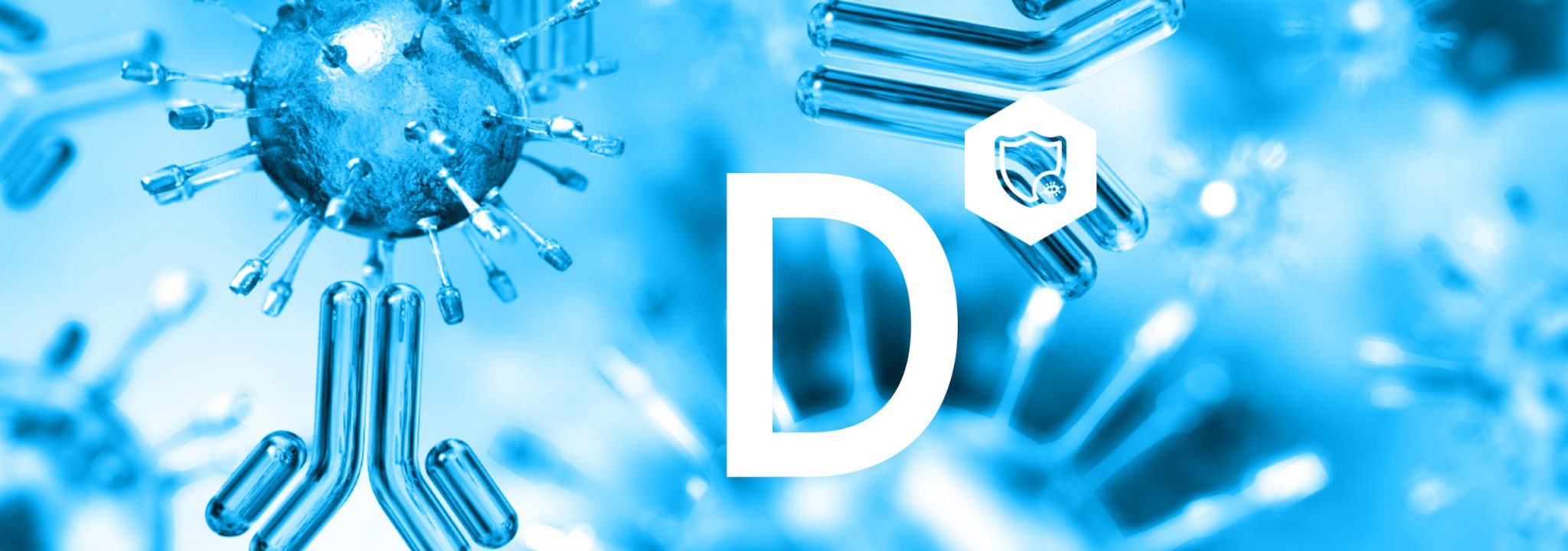When we get the sniffles, fever or sore throat, our immune system goes into high gear so our immune cells can quickly target and destroy the disease-causing invaders. Micronutrients are needed for the complex processes of innate and adaptive immunity. Adults and children who frequently get sick, as well as the elderly and the chronically ill, can all benefit from specific nutritional supplements. Vitamin D is a key component for a robust, well-functioning immune system.
Vitamin D – The immunomodulator
A high supply of Vitamin D can reduce susceptibility to infection, and protect against acute respiratory infection. The “sunshine vitamin” regulates our immune system at many points (such as macrophages and dendritic cells) and provides for immune homeostasis. Because just defeating invading pathogens reliably is not the only important thing. The immune system must also not overreact and damage body tissue. On one hand, with its regulating effect vitamin D makes the immune system “go live”. On the other hand, it moderates immune stimulating effects that might otherwise get out of hand.
Researchers consider vitamin D deficiency to increase the risk for a cytokine storm, a runaway inflammation process that can be life-threatening in the case of serious infections. Vitamin D is important for the inflammation response, because it has a regulatory effect on pro- and anti-inflammatory processes in the body.
An adequate supply is important for an intact immune system. During the dark seasons of the year, many people do not get enough exposure to UV light, resulting in a low vitamin D level, and supplements can help.
An effective anti-infection helper – The “Lemon of the North”
Sea buckthorn berries are chock-full of vitamins and phytochemicals. This bush can be found on the North Sea and Baltic coasts, and is sometimes called the “Lemon of the North” because of its extraordinarily high vitamin C content. Vitamin C protects from colds and speeds recovery. The colour of sea buckthorn berries reflects their high content of beta-carotene, a vitamin precursor that is essential for the mucous membranes as a protective barrier for the respiratory passages. The berries’ flavonoids (such as rutin and quercetin) together with the carotenoids and vitamin C are effective free radical scavengers. Thus, they strengthen the body’s defences against the free radicals that damage cells and promote inflammation. Sea buckthorn is also one of the few fruits that supplies vitamin B12, which is involved in the growth of immune cells.
Stronger together!
The phytochemcial lycopene is a member of the carotenoid family, and is particularly abundant in tomatoes. L-theanine is an amino acid that occurs in the tea plant, and is found in green tea. Both effectively support the body’s antioxidant protection processes, and so strengthen immune defences. L-theanine can also improve the function of immune cells and thereby the immune response in older people. A positive side effect is that this amino acid also has a calming, relaxing effect – more important than ever in these times!



